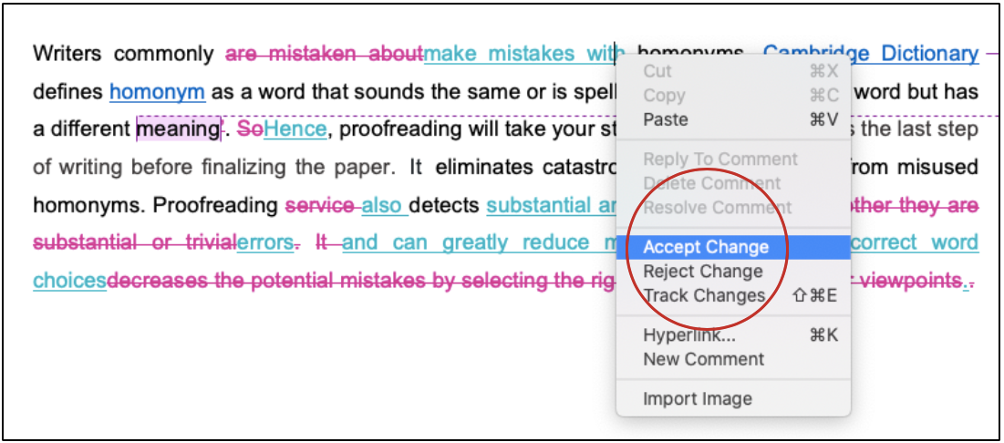A literature review includes academic sources on a specific topic. It aims to supply up-to-date knowledge, ensuring that you specify relevant theories, methodologies, and deficiencies in the extant research.

A literature review includes academic sources on a specific topic. It aims to supply up-to-date knowledge, ensuring that you specify relevant theories, methodologies, and deficiencies in the extant research.
Penning a literature review includes five critical steps:
Relevant literature search
Resource check
Specified themes, discussion, and deficiencies
Structure outlining
Write your literature review
Helpful literature is beyond epitomizing sources. It analyzes, critically assesses, and delineates the issues providing an apparent picture of current knowledge on the subject.
Writing a thesis, dissertation, or research paper involves conducting a literature review to a place where your research stands within existing knowledge. With the literature review, you have a chance to
depict your background on the topic and its academic context
devise a theoretical perspective and methods for your study
disclose your research’s position concerning other researchers and theorists
demonstrate how your research fills a gap or adds to an existing discussion
assess the up-to-date research and illustrate the depth of academic knowledge on the topic.
If you plan to pursue MS or Ph.D. degree, penning a literature review becomes more relevant and critical.
Suppose you write the literature review section of a dissertation or research paper. Before the literature review, you should specify your topic precisely. Your search will address your research problem and questions.
It would help if you began by forming a list of keywords for your research question. You must cover each of the key concepts or variables of interest. You may expand this list as you find new keywords during your literature search.
In searching for sources, you may begin with the keywords. Many databases are available to search for journals and articles.
Your university’s library catalog
Reading the abstract to discover whether an article benefits your study would be best. After finding a helpful book or writing, you may check the bibliography to reach other sources.
It is impossible to peruse everything written on your topic. Therefore, you must assess the sources most relevant to your research question.
Here is a list of questions to ponder.
What does the author try to address?
What are the critical concepts and their definitions?
What theories, models, and methods are relevant?
Is the research innovative or expanding already existing approaches?
What can you conclude from the study?
What is the relationship with other literature in the field? Does it verify, expand, or challenge already built knowledge?
You must use credible resources and include any landmark studies and critical theories in your field of study.
While reading, you should also start writing. You can later integrate notes into your literature review if you can take notes. Making an annotated bibliography can help you recall what you have read, saving time. Following your sources with citations will help you avoid plagiarism.
Before organizing your literature review’s discussion and structure, you should ensure you comprehend the connections and relationships between the sources you have perused. Thus, you can pursue
What is trending, and what is the model?
What are recurrent themes, questions, or concepts?
What are discussions, conflicts, and contradictions?
What are significant theories or studies changing the direction of the study field?
Deficiencies: What has not been studied in the literature?
You may organize the body of a literature review using varied approaches. You may use chronological, thematic, methodological, and hypothetical approaches. The length of your literature review is a decisive factor in allowing you to combine many strategies.
The most straightforward approach includes pursuing the development of your subject over time. Suppose you go with this strategy. You should not simply list and epitomize sources in order. Instead, you are expected to analyze patterns and critical discussions shaping your research. You should also present your interpretation of how and why specific developments have taken place.
Suppose you investigate the effect of COVID-19 on underdeveloped nations. Your critical themes may include healthcare policies, hygiene and sanitation in multiple regions, wealth, and access to shots. If some recurring central themes occur, your literature can cover subsections addressing various aspects of the topic.
You should contrast the results and conclusions emerging from various directions. The methodological part deals with different disciplines or fields employing several research methods. It should include comparisons between qualitative versus quantitative research, empirical versus hypothetical approaches, and literature study in sociological, historical, and cultural contexts.
A literature review forms the foundation for a hypothetical framework. Thus, you can employ it in various deliberate theories, models, and critical concepts.
The relevance of a particular hypothetical approach or combining various theoretical concepts with building a framework for your research is probable. The relevance of a specific hypothetical approach or combining different theoretical ideas with creating a framework for your study is possible.
The literature review should have an introduction, the main body, and a conclusion. The introduction should contain the focus and objective of the literature review. Suppose you write the literature review as part of your dissertation or thesis, repeating your primary problem or research question and presenting a summary of the academic context is relevant. Accentuating the topic's timeliness or underlining a deficiency in the literature is crucial.
The length of your literature review determines whether you need to divide the body into parts. Using subheadings for each theme, period, or methodological approach is necessary. Therefore you can epitomize and synthesize, providing essential points of each source. Then, paraphrasing other research should include analyzing and interpreting the significance of findings.
Equally important is critically assessing the strength and weaknesses of the sources used. Effective use of language is also crucial. You must employ transition words and topic sentences, offering connections, contrasts, and comparisons. Finally, the conclusion should epitomize the critical findings accentuating their significance. Ensure you have addressed how your research has contributed to the literature. After you have finished writing and revising your literature review, next is sending it to professional editing and proofreading service.
Best Edit & Proof expert editors and proofreaders focus on offering papers with proper tone, content, and style of academic writing, and also provide an upscale editing and proofreading service for you. If you consider our pieces of advice, you will witness a notable increase in the chance for your research manuscript to be accepted by the publishers. We work together as an academic writing style guide by bestowing subject-area editing and proofreading around several categorized writing styles. With the group of our expert editors, you will always find us all set to help you identify the tone and style that your manuscript needs to get a nod from the publishers.

You can also avail of our assistance if you are looking for editors who can format your manuscript, or just check on the particular styles for the formatting task as per the guidelines provided to you, e.g., APA, MLA, or Chicago/Turabian styles. Best Edit & Proof editors and proofreaders provide all sorts of academic writing help, including editing and proofreading services, using our user-friendly website, and a streamlined ordering process.
Visit our order page if you want our subject-area editors or language experts to work on your manuscript to improve its tone and style and give it a perfect academic tone and style through proper editing and proofreading. The process of submitting a paper is very easy and quick. Click here to find out how it works.
Our pricing is based on the type of service you avail of here, be it editing or proofreading. We charge on the basis of the word count of your manuscript that you submit for editing and proofreading and the turnaround time it takes to get it done. If you want to get an instant price quote for your project, copy and paste your document or enter your word count into our pricing calculator.
Contact us to get support with academic editing and proofreading. We have a 24/7 active live chat mode to offer you direct support along with qualified editors to refine and furbish your manuscript.
Follow us on Twitter, LinkedIn, Facebook, Instagram, and Medium.
For more posts, click here.
This article explains how to write literature review for your dissertation or thesis. To give you an opportunity to practice proofreading, we have left a few spelling, punctuation, or grammatical errors in the text. See if you can spot them! If you spot the errors correctly, you will be entitled to a 10% discount.
How to Determine Variability in a Dataset
14.10.2023
How to Determine Central Tendency
19.02.2023
How to Specify Study Variables in Research Papers?
14.01.2023
Population vs Sample | Sampling Methods for a Dissertation
14.01.2023
7 Issues to Avoid That may Dent the Quality of Thesis Writing
18.12.2022
How to Ensure the Quality of Academic Writing in a Thesis and Dissertation?
04.12.2022
How to Define Population and Sample in a Dissertation?
03.12.2022

For every academic scholar, whether a high school student or a doctoral candidate, understanding the different types of academic writing and knowing when and how to implement them is crucial. Academic writing is broadly classified into 4 distinct categories: analytical, descriptive, persuasive, and critical writing. Each of these categories has certain defining features and different purposes; however, an academic document can feature the usage of more than one of these types in conjunction.
Continue Reading
Writing for academic purposes entails writing literature that is formal in tone, objective, structure-wise complex and contains a fair amount of academic jargon. As such, there are certain words and phrases, collectively called taboo words, that academic writers omit when writing manuscripts. Academic writing encourages their elimination to maintain the “formality” of academic documents. This article discusses the definition of taboo words to avoid and examine their use cases.
Continue Reading
A dissertation defense is one of the critical milestones one needs to cross to obtain a doctoral degree. It is a process that helps a candidate proffer their research knowledge to an audience of accomplished academics. Thus, preparing to defend a dissertation can feel distressing and burdensome, for one needs to tick several checkboxes at once. But, with the right set of steps and adequate practice, candidates can successfully overcome this unease.
Continue Reading
An abstract, is an important part of an academic work and a synopsis of a longer study such as a dissertation or thesis. Its most critical aspect is precise reporting of the objectives and outcomes of your research. Thus, the readers can learn about your work by perusing your abstract.
Continue Reading
After gathering and analyzing your data, next is penning the results. You report the primary findings of your study in this section. The most critical issue is that reporting your results must be concise and pursue a logical order.
Continue Reading
You discuss and explore your results' prominence, meaning, and relevance in the discussion chapter. Therefore, you should concentrate on what you have found and explain and assess how your findings relate to your literature review and research questions.
Continue Reading
Scholars must write a research proposal to receive funding to support their projects and provide their graduate students with the needed funds to pursue post-graduate studies. Even you, as a student, may have to write one before you begin your thesis or dissertation. Whatever the objective is, one issue remains the most relevant.
Continue Reading